第45章 Chapter 21 Of the Three Sorts of Commonwealth(2)
8. In all aristocracies, the admission of such as are from time to time to have vote in the sovereign assembly, dependeth on the will and decree of the present optimates; for they being the sovereign, have the nomination (by the eleventh section of the former chapter) of all magistrates, ministers, and counsellors of state whatsoever, and may therefore choose either to make them elective, or hereditary, at their pleasure.
9. Out of the same democracy, the institution of a political monarch proceedeth in the same manner, as did the institution of the aristocracy (viz.) by a decree of the sovereign people, to pass the sovereignty to one man named, and approved by plurality of suffrage. And if this sovereignty be truly and indeed transferred, the estate or commonwealth is an absolute monarchy, wherein the monarch is at liberty, to dispose as well of the succession, as of the possession; and not an elective kingdom.
For suppose a decree be made, first in this manner: that such a one shall have the sovereignty for his life; and that afterward they will choose a new; in this case, the power of the people is dissolved, or not. If dissolved, then after the death of him that is chosen, there is no man bound to stand to the decrees of them that shall, as private men, run together to make a new election: and consequently, if there be any man, who by the advantage of the reign of him that is dead, hath strength enough to hold the multitude in peace and obedience, he may lawfully, or rather is by the law of nature obliged so to do. If this power of the people were not dissolved, at the choosing of their king for life; then is the people sovereign still, and the king a minister thereof only, but so, as to put the whole sovereignty in execution; a great minister, but no otherwise for his time, than a dictator was in Rome. In this case, at the death of him that was chosen, they that meet for a new election, have no new, but their old authority for the same. For they were the sovereign all the time, as appeareth by the acts of those elective kings, that have procured from the people, that their children might succeed them. For it is to be understood, when a man receiveth any thing from the authority of the people, he receiveth it not from the people his subjects, but from the people his sovereign. And farther, though in the election of a king for his life, the people grant him the exercise of their sovereignty for that time; yet if they see cause, they may recall the same before the time.
As a prince that conferreth an office for life, may nevertheless, upon suspicion of abuse thereof, recall it at his pleasure; inasmuch as offices that require labour and care, are understood to pass from him that giveth them as onera, burthens to them that have them; the recalling whereof are therefore not injury, but favour. Nevertheless, if in making an elective king with intention to reserve the sovereignty, they reserve not a power at certain known and determined times and places to assemble themselves; the reservation of their sovereignty is of no effect, inasmuch as no man is bound to stand to the decrees and determinations of those that assemble themselves without the sovereign authority.